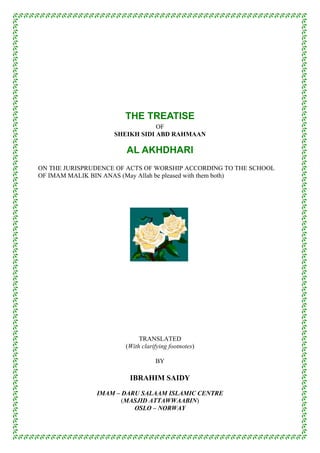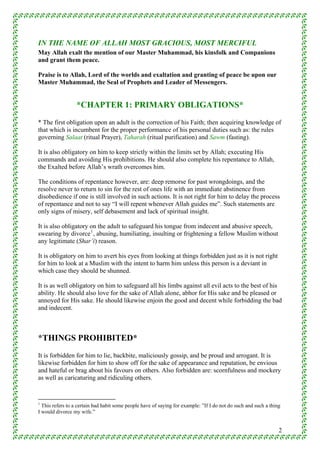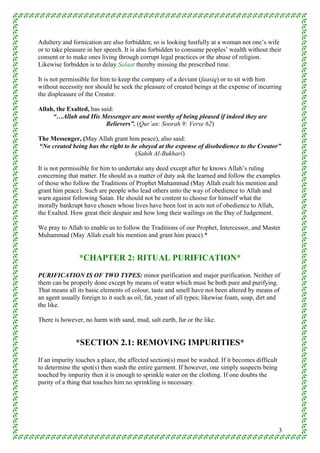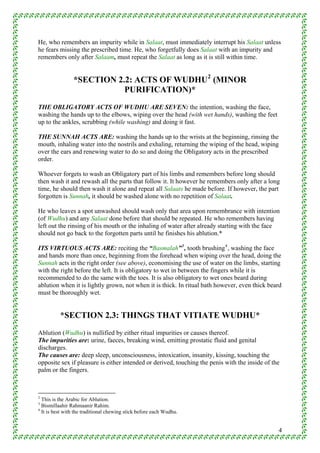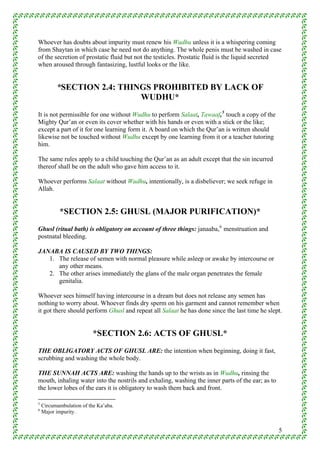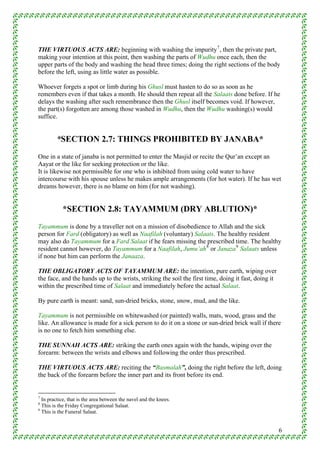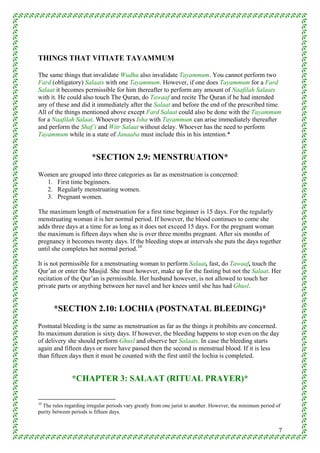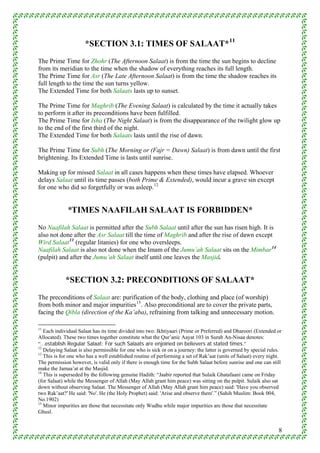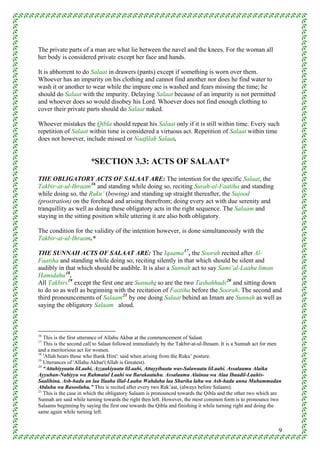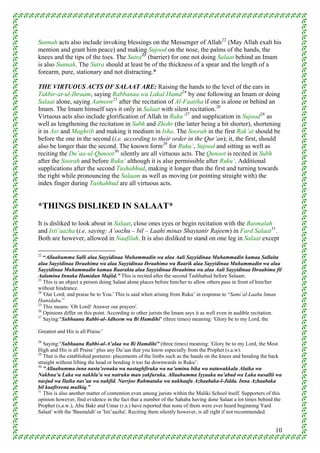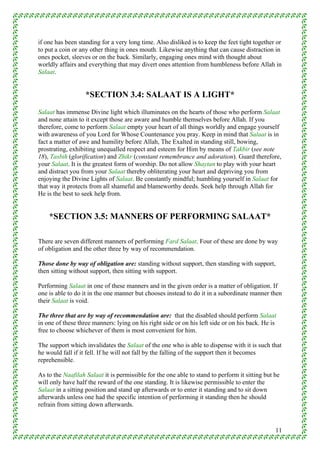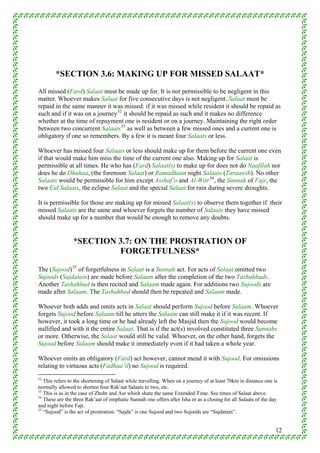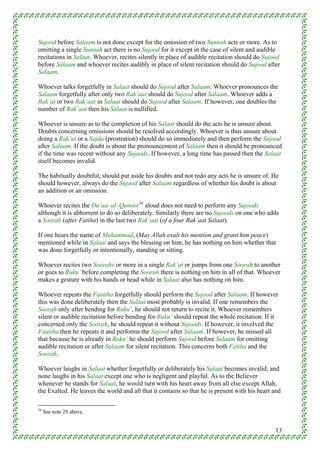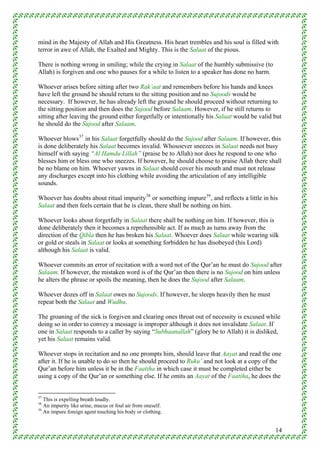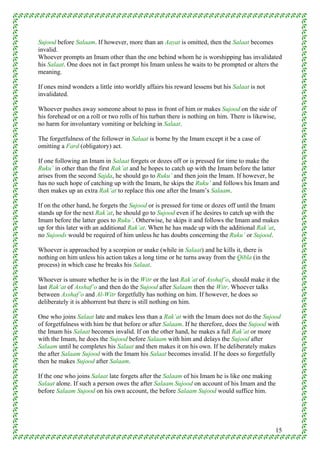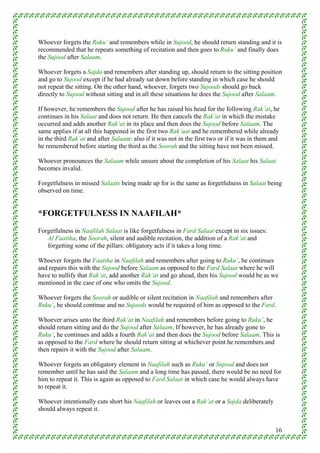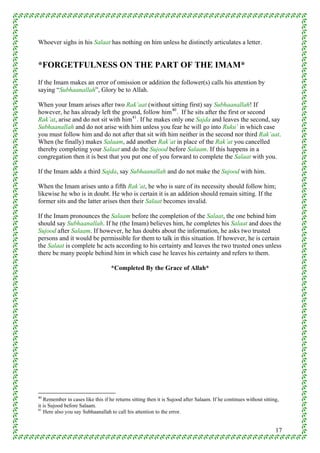This document provides guidance on acts of worship according to the Maliki school of jurisprudence. It begins by outlining primary obligations for Muslims, such as proper faith, knowledge, and avoiding prohibitions. It then discusses ritual purification (tahara), including the obligatory and recommended acts of wudu (ablution) and things that invalidate it. It also covers ghusl (full-body bath), things prohibited without purification, and guidelines for proper worship. The document instructs Muslims on correctly performing acts of worship and maintaining ritual purity according to the Maliki madhhab.
